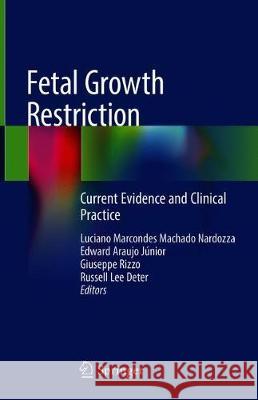Fetal Growth Restriction: Current Evidence and Clinical Practice » książka
topmenu
Fetal Growth Restriction: Current Evidence and Clinical Practice
ISBN-13: 9783030000509 / Angielski / Twarda / 2019 / 238 str.
Kategorie BISAC:
Wydawca:
Springer
Język:
Angielski
ISBN-13:
9783030000509
Rok wydania:
2019
Wydanie:
2019
Ilość stron:
238
Waga:
0.63 kg
Wymiary:
23.88 x 21.34 x 1.78
Oprawa:
Twarda
Wolumenów:
01











